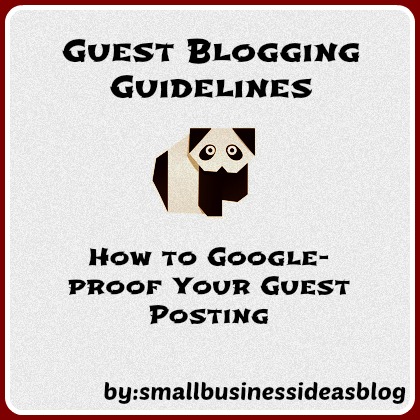 Early this year, Matt Cutts suggested that Google was going to start penalizing guest blogging networks that encouraged spammy guest posting. The problem is that:
Early this year, Matt Cutts suggested that Google was going to start penalizing guest blogging networks that encouraged spammy guest posting. The problem is that:
1) Many publisher sites are allowing low quality posts on their websites just to get traffic from Google.
Generally, sites with more content get more traffic because there are more possible keyword phrases that the site can show up for in the search engines. Some publisher sites try to create as much content as possible to get more search traffic from the search engines for long tail keywords.
Some publishers will monetize their sites with Adsense or affiliate links to make money. Guest blogging provides a way for publishers to get free content that will ultimately make them money without doing much real work since most of their content is being written by guest authors. By lowering the required quality to be accepted as a guest blogger, these sites make it easy for bloggers to submit content.
2) Many bloggers are producing low quality content to go on these sites just to get a link back to their own sites.
Even though these sites probably don’t have much traffic or a highly engaged audience, the link from the site will help with SEO. Links are still a major factor in search engine rankings, so by getting a large quantity of these links, SEO’s can generate search engine traffic to their websites.
High quality content takes much more time or money to produce. So by hiring inexpensive workers or just writing low quality content as quickly as possible, SEO’s and website owners could use guest posting to get links to their own websites.
The publisher wins because they have more content on their site and thus receive more long tail traffic. The guest blogger wins because they get an easy link back to their website. The search engines, however, lose when they send traffic to these low quality sites instead of other higher quality articles that gained their links naturally. People that are using search engines to find content are also frustrated when this low quality content comes up in the search results.
3) Since it is not possible for a search engine to distinguish between a guest post and a normal blog post, Google’s algorithm cannot distinguish between a naturally occurring link and a link generated by guest posting.
Blog networks make it easy for bloggers to connect with lots of other publishers and get a significant amount of links back to their site. In other words, a site with lower quality content can get more links than a site with high quality content just because it is participating in a blog network.
Clearly, this makes it more difficult for search engines to rank content using “natural links” as a signal.
4) Why not just shift the algorithm’s weight towards trusted higher authority sites?
Putting more weight on trust and authority might reduce the spam problem, but would also reduce the quality of the search results. Sometimes the best result may be on a low authority domain, so search engines still do have to rely on links from low authority sites and pages.
Also, most “natural links” do come from lower authority sites. These websites and blogs link out to content that is useful and relevant to their article and such links are an important signal to the search engines in regards to what should rank for certain queries.
5) What is “low quality”?
A big gray area exists when it comes to the question of how “quality” is defined. In other words, when is a blog post considered “low quality” and when is the quality acceptable. Less popular publishers that accept guest posts will often have lower quality standards, but will still reject content that is of very low quality.
Some publishers also implement their own rules, like restricting the number of outbound links, while others have no such guidelines. Since the exact guidelines are not published anywhere, some publishers find themselves confused as to what they can and cannot do.





 In my previous post, over
In my previous post, over